Thesaurus : Doctrine
Référence complète : Boursier, M.-E., L’irrésistible ascension du whistleblowing en droit financier s’étend aux abus de marché, Bulletin Joly Bourse, 1ier septembre 2016.
Les étudiants de Sciences po peuvent lire l'article en accédant au dossier "MAFR - Régulation"
Thesaurus : Doctrine
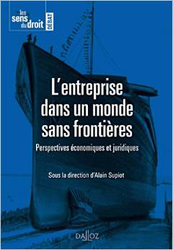
► Référence complète : S. Manacorda, "La dynamique des programmes de conformité des entreprises : déclin ou transfiguration du droit pénal des affaires ?", in A. Supiot (dir.), L'entreprise dans un monde sans frontières. Perspectives économiques et juridiques, coll. "Les sens du droit", Dalloz, 2015, p. 191-208.
____
► Résumé de l'article :
____
🦉Cet article est accessible en texte intégral pour les personnes inscrites aux enseignements de la Professeure Marie-Anne Frison-Roche
________
Thesaurus : Doctrine
Teachings : Compliance Law
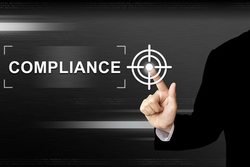
♾️ follow Marie-Anne Frison-Roche on LinkedIn
♾️subscribe to the Newsletter MAFR Regulation, Compliance, Law
____
This general bibliography brings together some general references, which overlap or cross over the more specific bibliographies on Compliance, through different subjects or branches of Law, in French Law or in foreign and supra-national Law having a direct influence, so that one can understand what results in nation law.
It is composed of doctrinal documents (books and articles), legislative or regulatory texts applicable in France and other countries (and, where applicable, draft laws or regulations), as well as documents of gray literature .
It may be relevant to cross this bibliography with the broader Bibliography on the General Regulation Law, or with the more focused Bibliography on the Law of Banking and Financial Regulation.
Thesaurus : Doctrine
Référence : Beauvais, P., Méthode transactionnelle et justice pénale, in Gaudemet, A. (dir.), La compliance : un nouveau monde? Aspects d'une mutation du droit, coll. "Colloques", éd. Panthéon-Assas, Panthéon-Assas, 2016, pp. 79-90.
Voir la présentation générale de l'ouvrage dans lequel l'article a été publié.
May 24, 2024
Conferences
🌐follow Marie-Anne Frison-Roche on LinkedIn
🌐subscribe to the Newsletter MAFR Regulation, Compliance, Law
____
► Full Reference: M.-A. Frison-Roche, "Synthèse" ("Synthesis"), in Concurrence : les enjeux de la Compliance, May 24, 2024, Paris, Collège européen de Paris, Paris Panthéon-Assas University, 28 rue Saint-Guillaume
____
🧮see the full programme of this event
____
► Presentation of the conference :
________
April 18, 2024
Thesaurus : Doctrine
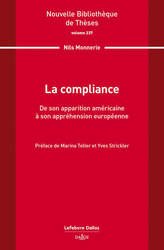
► Référence complète : N. Monnerie, La compliance. De son apparition américaine à son appréhension européenne, Dalloz, coll. "Nouvelle Bibliothèque de Thèses", vol. 237, 2024, 500 p.
____
____
📗lire le sommaire de l'ouvrage
____
📗lire la table des matières de l'ouvrage
____
► Résumé de l'ouvrage (fait par l'éditeur) : "Cette recherche est consacrée à l'émergence de la compliance dans la sphère juridique. À ce titre, elle constitue une des premières études transversales sur cette nouvelle notion.
Appliquée à l'encadrement du comportement des grandes sociétés, la compliance effraie tant qu'elle fascine, alors qu'elle a parfois été considérée comme un phénomène non juridique, une régulation hors du droit. L'intuition émaillant cet ouvrage soutient que la notion de compliance désigne un instrument juridique uniforme et fonctionnel. Enjeu majeur des entreprises et des organisations de tous secteurs, la compliance étend de plus en plus son champ et sa complexité. La mise en place d'un système de compliance efficace est un défi pour de nombreuses entreprises, qui doivent concilier exigences légales et réglementaires avec les contraintes opérationnelles et les objectifs économiques des sociétés. De leur côté, les États sont également confrontés à cet instrument au travers des sanctions prononcées par les autorités étrangères à l'encontre de sociétés domestiques.
L'ambition de cet ouvrage est de systématiser le processus de la compliance, d'analyser son incidence sur l'encadrement des sociétés, tout en appréciant l'opportunité de sa transplantation hors des États-Unis.
Une approche macro-comparative et historique démontre comment la compliance a fini par devenir un instrument permettant à l'État américain de déléguer le contrôle de l'application des normes substantielles. D'un instrument au service de la gestion du risque des sociétés, elle a fini par devenir un standard axé sur la prévention et la coopération. L'étude de l'exportation de la compliance révèle, au moyen de micro-comparaisons, que son arrivée en Europe résulte de l'application extraterritoriale du droit américain. Tout en démontrant qu'après avoir rejeté cette pratique, certains États ont décidé de recourir à une transplantation légale afin d'intégrer cet instrument dans leur ordre juridique.
L'ouvrage conclu en dressant plusieurs pistes de réflexion adressée aux autorités législatives afin de les aider à appréhender les difficultés inhérentes à la transplantation de la compliance.".
________
March 14, 2024
Publications
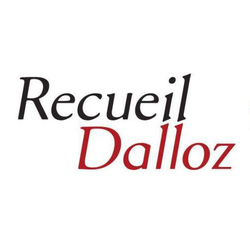
🌐follow Marie-Anne Frison-Roche on LinkedIn
🌐subscribe to the Newsletter MAFR Regulation, Compliance, Law
____
► Full Reference: M.-A. Frison-Roche, "Compliance et conformité : les distinguer pour les articuler" ("Compliance and conformity: distinguish them in order to articulate them"), D. 2024, chron., pp. 497-499
____
📝read the article (in French)
____
🚧read the bilingual Working Paper which is the basis of this article, with additional developments, technical references and hyperlinks
____
► English Summary of the article: "Compliance" and "conformité" ("conformity") are sometimes presented as synonyms, with "conformité" simply being the translation of "compliance". On the contrary, they are two opposing concepts. "Conformity" refers to the obligation to obey all applicable regulations, regardless of their content. A godsend for the regulator... Compliance Law is quite different! Political and public authorities set systemic 'Monumental Goals' to ensure that systems do not collapse tomorrow, or even improve, and then entrust large companies with the task of activating the means to achieve these goals. Conformity then resumes its place in Compliance Law: being one of its tools.
____
📚read the other articles published in this chronique of Compliance Law published in the Recueil Dalloz
________

Feb. 19, 2024
Publications
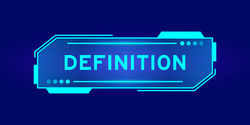
🌐 follow Marie-Anne Frison-Roche on LinkedIn
🌐subscribe to the Newsletter MAFR Regulation, Compliance, Law
____
 ► Full Reference: M.-A. Frison-Roche, Compliance and conformity: distinguishing them to articulate them, Working Paper, February 2024.
► Full Reference: M.-A. Frison-Roche, Compliance and conformity: distinguishing them to articulate them, Working Paper, February 2024.
____
📝 this working paper was drawn up to serve as a basis for the article published in French in the Chronique MAFR - Compliance Law, published in the Recueil Dalloz.
____
► Summary of this Working Paper: The words "conformité" and "compliance" are sometimes used interchangeably, presenting "conformité" as the translation into good legal French vocabulary of "compliance", which would come from the American system. This is not true, however, because each of these terms refers to two distinct and even opposing concepts.
"conformity"' would require companies to show that they are actively obeying all the 'regulations' applicable to them, regardless of their content. "Compliance Law" is a new substantial branch of Law that derives its normativity from the "Monumental Goals" targeted by the political and public authorities: these monumental goals are intended to ensure that systems do not collapse in the future (Negative Monumental Goals), or even improve (Positive Monumental Goals). The systems concerned are banking, finance, energy, health, transport, digital and climate systems. The scope of Compliance Law is therefore both much more limited and more ambitious.
Distinguishing between the two allows us to put conformity back where it belongs, as a tool of Compliance Law. As such, conformity justifies the collation and correlation of information, with the algorithmic system playing a major role in this. On the other hand, the human concern that underpins Compliance Law justifies making training and the actions of in-house lawyers, attorneys and judges, central to it. The evidentiary system of Compliance that is currently being developed is based on evidentiary techniques rooted on the one hand in the tool of conformity and on the other in the culture of Compliance, which can be articulated as soon as they are no longer confused.
____
🔓read the working paper below⤵️
Feb. 3, 2024
Interviews
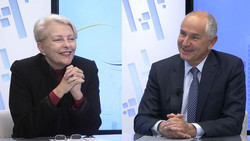
► Référence complète : Ch. Lapp, "L’usage par les entreprises des outils de la compliance (d’une façon non-mécanique)", entretien mené par M.-A. Frison-Roche à l'occasion d'une série d'entretiens sur le Droit de la Compliance, in Fenêtres ouvertes sur la gestion, émission de J.-Ph. Denis, Xerfi Canal, enregistré le 12 décembre 2023, diffusé le 3 février 2024
____
🌐consulter sur LinkedIn la présentation de l'interview de Christophe Lapp
____
🌐consulter sur LinkedIn le compte-rendu de l'interview de Christophe Lapp
____
🎥visionner l'interview complète sur Xerfi Canal
____
► Point de départ : En 2023 Christophe Lapp écrit une contribution sur 📝La compliance dans l'entreprise : les statuts du process, dans 📕La juridictionnalisation de la Compliance.
🧱lire la présentation de cette contribution ➡️cliquerICI
____
► Résumé de l'entretien :
Marie-Anne Frison-Roche. Question : Dans votre article vous affirmez qu’« il faut dépasser la conformité pour aller vers la Compliance », pouvez-vous nous en dire plus ?
Christophe Lapp. Réponse : Il répond que
____
MaFR. Q. : On dit souvent que la Compliance est perçue comme une perte de compétitivité. Quel est votre point de vue de praticien international ?
Ch.L. R. : Il répond que
____
MaFR. Q : Certaines entreprises s’interrogent sur l’over compliance ; que leur répondre ?
Ch.L. R.: Il répond que
________
May 9, 2023
Thesaurus : Doctrine
► Référence complète : E. Dupic, "La compliance en entreprise : quels enjeux en 2023 ?", Gazette du Palais, n° 15, 9 mai 2023, p. 9-11.
____
► Résumé de l'article (fait par l'auteur) : Les entreprises sont contraintes par un ensemble de normes légales et réglementaires qui les conduisent à déployer un dispositif interne de compliance, adapté à leur business, pour répondre aux exigences des régulateurs français et étrangers : règlement général de protection des données (RGPD), loi dite Sapin II, devoir de vigilance et statut du lanceur d’alerte constituent autant de défis à relever en 2023.
____
🦉Cet article est accessible en texte intégral pour les personnes inscrites aux enseignements de la professeure Marie-Anne Frison-Roche
________
June 26, 2020
Thesaurus : Doctrine
► Référence complète : J.-Ch. Roda, "Compliance et antitrust. Le discours de la méthode", in J.-Ch. Roda (dir.), Compliance et droit de la concurrence : nouveaux défis, nouveaux enjeux, Revue internationale de la compliance et de l'éthique des affaires, n° 3, juin 2020, étude 109, pp. 11-15.
____
► Résumé de l'article (fait par l'auteur) : "The discourses of the competition authorities are essential for the dissemination of the compliance culture. Their comparative analysis reveals significant divergences that may explain the differences in compliance adherence." (traduction libre : "Les discours des autorités de concurrence sont essentiels pour la diffusion d'une culture de compliance. Leur analyse comparative révèle des divergences significatives, qui peuvent expliquer les différences d'adhésion à la compliance.")
____
🦉Cet article est accessible en texte intégral pour les personnes inscrites aux enseignements de la Professeure Marie-Anne Frison-Roche
________
June 26, 2020
Thesaurus : Doctrine
► Référence complète : L.-M. Augagneur, "Les aspects relatifs à la circulation des données dans les programmes de conformité en droit de la concurrence", in J.-Ch. Roda (dir.), Compliance et droit de la concurrence : nouveaux défis, nouveaux enjeux, Revue internationale de la compliance et de l'éthique des affaires, n° 3, juin 2020, étude 111, pp. 21-25.
____
► Résumé de l'article (fait par l'auteur) : "The risk assessment of antitrust practices involving datas could be uncertain in consideration of the increasing production and circulation of datas, their algorithmic use, and the intricate operation of the concerned markets. Far from being limited to a standard system or technology solutionism, relevant compliance programs should rely on the own advocacy policy of the firm. This policy can be designed by identifying competition key factors and habits implemented throughout the data’s life cycle." (traduction libre : "L'évaluation des risques liés aux pratiques antitrust impliquant des données pourrait être incertaine compte tenu de la production et de la circulation croissantes des données, de leur utilisation algorithmique et du fonctionnement complexe des marchés concernés. Loin de se limiter à un système standard ou à un solutionnisme technologique, les programmes de conformité pertinents devraient s'appuyer sur la politique de défense des intérêts de l'entreprise. Cette politique peut être conçue en identifiant les facteurs clés de la concurrence et les habitudes mises en œuvre tout au long du cycle de vie des données.")
____
🦉Cet article est accessible en texte intégral pour les personnes inscrites aux enseignements de la Professeure Marie-Anne Frison-Roche
________

April 24, 2020
Publications

Its subject is the confrontation between the current health crisis situation and the Compliance Law.
Summary. After defining Compliance Law, distinguishing the procedural and poor definition and the substantial and rich definition, the starting point is to admit the aporia: the type of health crisis caused by Covid-19 will be renewed and it is imperative to prevent it, even to manage it, then to organize the crisis exit. Public Authorities are legitimate to do so, but because this type of crisis being global and the State being consubstantially linked to borders, States are hardly powerful. Their traditional International Law shows their limits in this current crisis and one cannot hope that this configulration will improve radically.
In contrast, some companies and markets, notably the financial markets, are global. But the markets are not legitimate to carry out such missions and counting on the generosity of certain large companies is far too fragile in front of the "monumental goal" that is the prevention of the next health crisis, crisis which must never happen.
How to get out of this aporia?
By Compliance Law, basis of, in a literal and strong sense, the "Law of the Future".
We need to be inspired by the Banking and Financial Compliance Law. Designed in the United States after the 1929 crisis to tend towards the "monumental goal" of the absence of a new devastating crisis in the country and the world, this set of new legal mechanisms gave duty and power of supervision, regulation and compliance to market authorities and central bankers. These are independent of governments but in constant contact with them. Today, they claim to have as first priority the fight against climate change. Now and for the future, they must also be given the responsibility and the powers to prevent a global health disaster, similar to a global ecological disaster, similar to a global financial disaster. This does not require a modification of the texts because their mandate consists in fighting instability. Stability must become a primary legal principle, of which the fight against monetary instability was only a first example. By the new use that central banks must make of it by preventing and managing health crises, Compliance Law will ensure that the future will be not catastrophic.
Aug. 22, 2019
Publications

En matière de Compliance, il y a deux sujets à la fois très importants et très incertains : celui de l'admission ou non des technologies de reconnaissance faciale ; celui de la forme et et de la place du "consentement" quelque soit la technique de captation, conservation et utilisation de l'information.
Le cas soumis à l'Autorité suédoise de protection des données (Datainspecktionen) et rapporté par la presse, croise les deux.
I. LE CAS
Une école suédoise doit en application de la loi nationale faire l'appel de chaque élève à chaque cours. Une Ecole supérieur a calculé que cette tâche, qui incombe donc à chaque enseignant en début de cours, représente un nombre d'heures important, qui pourrait être mieux utilisées par ceux-ci. Elle demande donc à une entreprise de technologie, Tieto, de développer pour elle des technologies qui redonnent aux enseignants leur temps.
L'entreprise Tieto conçoit un programme pilote, comprenant un procédé de reconnaissance faciale par la pupille de l'oeil, comptant ainsi les élèves présents. Les 21 élèves qui suivent le programme pilote apportent leur consentement express pour l'ensemble des technologies utilisées, notamment celle-ci.
Mais en février 2019 l'Autorité suédoise de surveillance, d'inspection et de protection des données poursuit l'entreprise qui a fourni cette technologie et l'école qui en a bénéficié pour violation du Réglement européen dit "RGPD".
L'école se prévaut du consentement libre et éclairé qui lui a été apporté par les élèves, tandis que le fournisseur de la technologie justifie l'usage de celle-ci par le fait qu'ainsi l'équivalent de 10 emplois à plein temps sont annuellement économisés pour des tâches mécaniques.
II. LA SOLUTION
Ces moyens n'ont pas convaincu l'Autorité.
Sur la question de l'efficacité du procédé, il ne semble pas même y être répondu, car tous ces mécanismes sont à l'évidence performants, car la protection des personnes est sans conteste coûteuse.
Mais sur la question du consentement, il est mentionné que le moyen tiré du consentement des élèves n'est pas retenu en raison du fait qu'ils n'étaient pas autonomes de l'établissemnt bénéficiaire de la technique de reconnaissance et qu'à ce titre le consentement n'avait donc pas de portée.
L'usage de cette technique est donc interdicte.
Mais l'Autorité ne se contente pas d'une interdiction. Elle indique qu'il convient, puisque les opérateurs en sont encore au stade d'un programme pilote d'ensemble de trouver ce que l'Autorité appelle un mode de contrôle des présences "moins intrusifs", car c'est en tant que l'ensemble prenait les élèves dans leur environnement toute la journée que cela n'était pas admissible.
III. LA PORTEE
Ce n'est pas donc une décision de principe.
C'est plutôt une décision d'espèce, en raison des circonstances qui vont que d'une part le consentement ne traduisait pas une volonté libre. Si les élèves n'avaient pas été ce que l'Autorité appelle la "dépendance" de l'établissement, alors sans doute leur acceptation de ces contrôles aurait eu de la portée.
S'il faut trouver un principe, il est par déduction celui-ci : le "consentement" n'est pas une notion autonome, suffisant à elle-seule à valider les technologies au regard du RGPD. Ce n'est qu'en tant qu'elle traduit une "volonté libre" que le "consentement" a pour effet de soumettre la personne qui l'émet à une technologie qui pourtant la menace autant qu'elle la sert.
C'est bien ce lien entre "consentement" et "volonté" que le RGPD veut garantir. C'est bien ce lien - de nature probatoire -, le consentement devant être la preuve d'une volonté libre, que le dispositif de Droit de la Compliance veut protéger.
Dès lors, si l'émetteur du consentement est dans une situation de dépendance par rapport à l'entité qui bénéficie de la technologie (par exemple et en l'espèce l'école qui fait des économies grâce à la technologie, sans que cela n'apporte rien à l'élève), la présomption comme quoi son consentement est la preuve d'une volonté libre est brisé : c'est pourquoi le consentement ne peut plus valider l'usage de la technologie.
Sur la question du rapport entre le "consentement" et la "volonté" : v. Frison-Roche, M.-A., Oui au principe de la volonté, manifestation de la liberté, non aux consentements mécaniques, 2019.
-----
May 29, 2019
Thesaurus : Doctrine
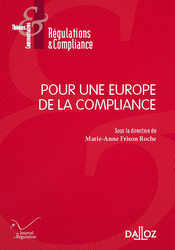
► Full Reference: J.-Cl. Marin, "Quels outils pour la construction du droit de la compliance en Europe ?" ("What tools are needed to build Compliance Law in Europe?"), in M.-A. Frison-Roche (ed.), Pour une Europe de la Compliance, series "Régulations & Compliance", Dalloz, 2019, p. 67-72.
____
📕read a general presentation of the book, Pour une Europe de la Compliance, in which this article is published
____
► Summary of the article (done by the Journal of Regulation & Compliance):
____
🦉This article is available in full text to those registered for Professor Marie-Anne Frison-Roche's courses
________
May 29, 2019
Thesaurus : Doctrine

► Full Reference: M. Canto-Sperber, "La compliance et les définitions traditionnelles de la vertu" ("Compliance and traditional definitions of virtue"), in M.-A. Frison-Roche (ed.), Pour une Europe de la Compliance, series "Régulations & Compliance", Dalloz, 2019, p. 73-77.
____
📕read a general presentation of the book, Pour une Europe de la Compliance, in which this article is published
____
► Summary of the article (done by the Journal of Regulation & Compliance):
____
🦉This article is available in full text to those registered for Professor Marie-Anne Frison-Roche's courses
________
May 29, 2019
Editorial responsibilities : Direction of the collection "Regulations & Compliance", JoRC & Dalloz

♾️ follow Marie-Anne Frison-Roche on LinkedIn
♾️ subscribe to the Newsletter MAFR Regulation, Compliance, Law
____
► Full Reference: M.-A. Frison-Roche (ed.), Pour une Europe de la Compliance (For the Europe of the Compliance), series "Régulations & Compliance", Dalloz, 2019, 124 p.
____
This volume is the continuation of the books dedicated to Compliance in this collection.
📚Read the other books' presentations of the collection about Compliance:
🕴️M.-A. Frison-Roche (ed.), 📕La juridictionnalisation de la Compliance, 2023
🕴️M.-A. Frison-Roche (ed.), 📕Les Buts Monumentaux de la Compliance, 2022
🕴️M.-A. Frison-Roche (ed.), 📕Les outils de la Compliance, 2021
🕴️N. Borga, 🕴️J.-Cl. Marin &🕴️J.-Ch. Roda (ed.), 📕Compliance : l'Entreprise, le Régulateur et le Juge, 2018
🕴️M.-A. Frison-Roche (ed.), 📕Régulation, Supervision, Compliance, 2017
🕴️M.-A. Frison-Roche (ed.),📕 Internet, espace d'interrégulation, 2016
📚Read the presentations of the other titles of the collection.
____
► General presentation of the book: This book is written in French. The topic is : "For the Europe of the Compliance".
See below its general presentation in English.
The political dimension is intrinsic to the Compliance Law. Indeed, compliance mechanisms consist of internalizing in certains companies the obligation to implement goals of general interest set by Public Authorities. These public bodies control the Ex Ante reorganization that implies for these companies and punish Ex Post the possible structural inadequacy of these compagnies, becoming transparent for this purpose.
This new mode of governance establishes a continuum between Regulation, Supervision, Compliance (book published in 2017) and renew the links between Companies, Regulators and Judges!footnote-1600.
This political dimension must be increased: the Compliance Law of Compliance must today be used to build Europe.
One can observe not only the construction of the European Compliance Law, object-by-object, sector-by-sector, purpose-by-purpose, but also the construction of the European Compliance Law that transcends and unifies them. Becoming independent of American Law and ceasing to be in reaction, even on the defensive, the Compliance Law contributes to the European project, offering it a higher ambition, that Europe can carry and, by this way, can carry the Europe itself, not only to preserve the European economy from corruption or money laundering, but by claiming the protection of nature and human beings.
This is why the book describes the "reasons and objectives" of the Europe of the Compliance, which makes it possible to describe, detect and even predict the ways and means.
____
► Understand the book through the Table of Contents and the summaries of each article:
🕴️M.-A. Frison-Roche, 📝Avant propos
🕴️K. Lenaerts, 📝Le juge de l'Union européenne dans une Europe de la compliance
🕴️M.-A. Frison-Roche, 📝Un droit substantiel de la compliance, appuyé sur la tradition européenne humaniste
I. LES RAISONS ET LES OBJECTIFS D'UNE EUROPE DE LA COMPLIANCE (THE REASONS AND OBJECTIVES OF THE EUROPE OF THE COMPLIANCE)
🕴️X. Musca, 📝Construire une Europe de la compliance en donnant une meilleure place aux entreprises
🕴️P. Vimont, 📝La place de la diplomatie dans l'avancée d'une Europe de la compliance
🕴️P. Sellal, 📝Les vertus de la compliance : une réponse possible aux faiblesses de l'Union européenne ?
🕴️J.-J. Daigre, 📝Compliance, entreprise et Europe
II. LES VOIES ET MOYENS D'UNE EUROPE DE LA COMPLIANCE (THE WAYS AND MEANS OF THE EUROPE OF THE COMPLIANCE)
🕴️J.-Cl. Marin, 📝Quels outils pour la construction du droit de la compliance en Europe ?
🕴️M. Canto-Sperber, 📝La compliance et les définitions traditionnelles de la vertu
🕴️T. Bonneau, 📝Compliance et secteur bancaire et financier en Europe
🕴️C. Duchaine, 📝L'Agence française anticorruption, à l'appui de l'Europe de la compliance
🕴️D. Martin, 📝Les contraintes et les vertus de la compliance
🕴️A. de La Cotardière, 📝Construire une Europe de la compliance lisible pour les entreprises
________
May 29, 2019
Thesaurus : Doctrine

► Full Reference: D. Martin, "Les contraintes et les vertus de la compliance" ("The constraints and virtues of Compliance"), in M.-A. Frison-Roche (ed.), Pour une Europe de la Compliance, series "Régulations & Compliance", Dalloz, 2019, p. 107-118.
____
📕read a general presentation of the book, Pour une Europe de la Compliance, in which this article is published
____
► Summary of the article (done by the Journal of Regulation & Compliance):
____
🦉This article is available in full text to those registered for Professor Marie-Anne Frison-Roche's courses
________
May 29, 2019
Thesaurus : Doctrine

► Full Reference: P. Sellal, "Les vertus de la compliance : une réponse possible aux faiblesses de l'Union européenne ?" ("The virtues of compliance: a possible response to the European Union's weaknesses?"), in M.-A. Frison-Roche (ed.), Pour une Europe de la Compliance, series "Régulations & Compliance", Dalloz, 2019, p. 53-59.
____
📕read a general presentation of the book, Pour une Europe de la Compliance, in which this article is published
____
► Summary of the article (done by the Journal of Regulation & Compliance):
____
🦉This article is available in full text to those registered for Professor Marie-Anne Frison-Roche's courses
________
May 29, 2019
Thesaurus : Doctrine

► Full Reference: P. Vimont, "La place de la diplomatie dans l'avancée d'une Europe de la compliance" ("The role of diplomacy in advancing the Europe of the Compliance"), in M.-A. Frison-Roche (ed.), Pour une Europe de la Compliance, series "Régulations & Compliance", Dalloz, 2019, p. 49-52.
____
📕read a general presentation of the book, Pour une Europe de la Compliance, in which this article is published
____
► Summary of the article (done by the Journal of Regulation & Compliance):
____
🦉This article is available in full text to those registered for Professor Marie-Anne Frison-Roche's courses
________
May 29, 2019
Thesaurus : Doctrine

► Référence complète : J.-J. Daigre, "Compliance, entreprise et Europe" ("Compliance, company and Europe"), in M.-A. Frison-Roche (ed.), Pour une Europe de la Compliance, series "Régulations & Compliance", Dalloz, 2019, p. 61-64.
____
📕read a general presentation of the book, Pour une Europe de la Compliance, in which this article is published
____
► Summary of the article (done by the Journal of Regulation & Compliance):
🦉This article is available in full text to those registered for Professor Marie-Anne Frison-Roche's courses
________
May 29, 2019
Thesaurus : Doctrine

► Full Reference : K. Lenaerts, "Le juge de l'Union européenne dans une Europe de la Compliance" ("The Judge of the European Union in the Europe of the Compliance"), in M.-A. Frison-Roche (ed.), Pour une Europe de la Compliance, series "Régulations & Compliance", Dalloz, 2019, p.1-12.
____
📕read a general presentation of the book, Pour une Europe de la Compliance, in which this article is published
____
► Summary of the article (done by the Journal of Regulation & Compliance):
____
🦉This article is available in full text to those registered for Professor Marie-Anne Frison-Roche's courses
________
May 8, 2019
Thesaurus : Doctrine

Référence complète : Margaritelli, B., Assises juridiques de la consommation, de la distribution et de la compliance, in Journal Spécial des Sociétés, n°34, mai 2019, pp.1-4.
Présentation de l'article par le Journal : A l'occasion d'une table ronde aux Assises juridiques de la consommation, de la distribution et de la compliance en mars dernier, la loi Egalim, qui introduit de nouvelles obligations pour toute la chaîne de valeurs agroalimentaire et la grande distribution, était dans le viseur. Retour sur les mesures phares, objectifs et limites de cette réforme boudée, à travers les regards croisés de quatre spécialistes.
April 25, 2019
Thesaurus : Doctrine
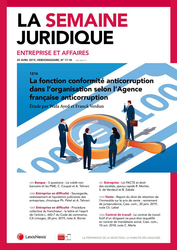
Full reference : Ayed,W., Verdun,F., La fonction conformité anticorruption dans l’organisation selon l’Agence française anticorruption, in La semaine juridique, Entreprises et Affaires, JCP, E, LexisNexis, n°17-18/1206, 25 avril 2019, pp.38-44.
Sciences Po students can read the article via the drive, folder "MAFR - Régulation - Compliance"
